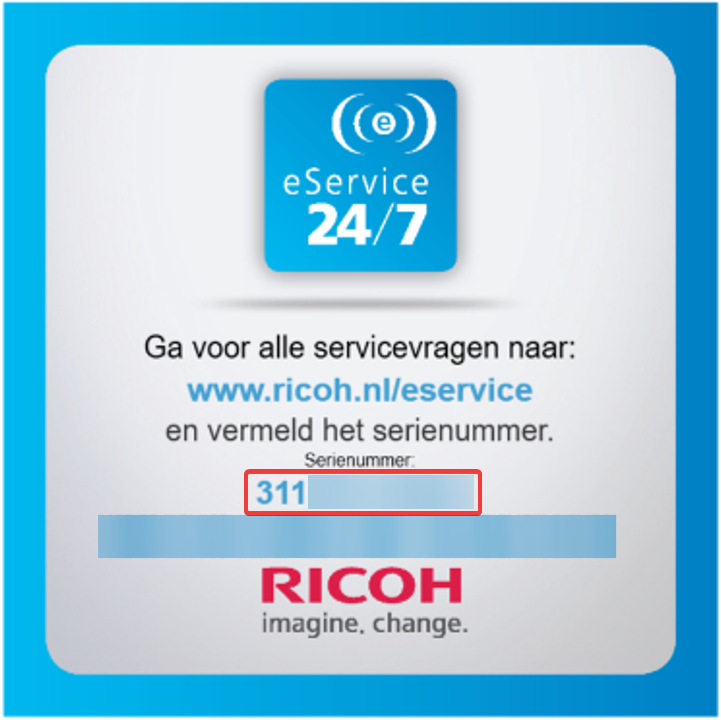Part 2: Restoring configuration
Prepare restoring configuration
The RICOH Easy Migrate tool works in two parts. In the first part, you have made a backup of the configuration of your current (multifunctional) printer. In this second part, a restore is performed on the new (multifunctional) printer, at this point all configurations are made on the new (multifunctional) printer. This page describes how to restore the configuration onto your new (multifunctional) printer.
Keep the serial number of your new (multifunctional) printer on hand to confirm the (multifunctional) printer.
The RICOH Easy Migrate tool has not been able to copy the current passwords from your current (multifunctional) printer. When re-storing, the tool will ask for up to 4 passwords from the proxy, SMTP (mail) and folder credentials. Your system administrator may be able to help you get these details.
Prepare restoring configuration checklist
- Serial number (s/n) new (multifunctional) printer
- (Optional) 4 passwords from proxy, SMTP (mail) and folder credentials
Step 1: Search for available (multifunctional) printer
By clicking on the “Start searching” button, the Ricoh Easy Migrate tool will start scanning for available (multifunctional) printers in your network.
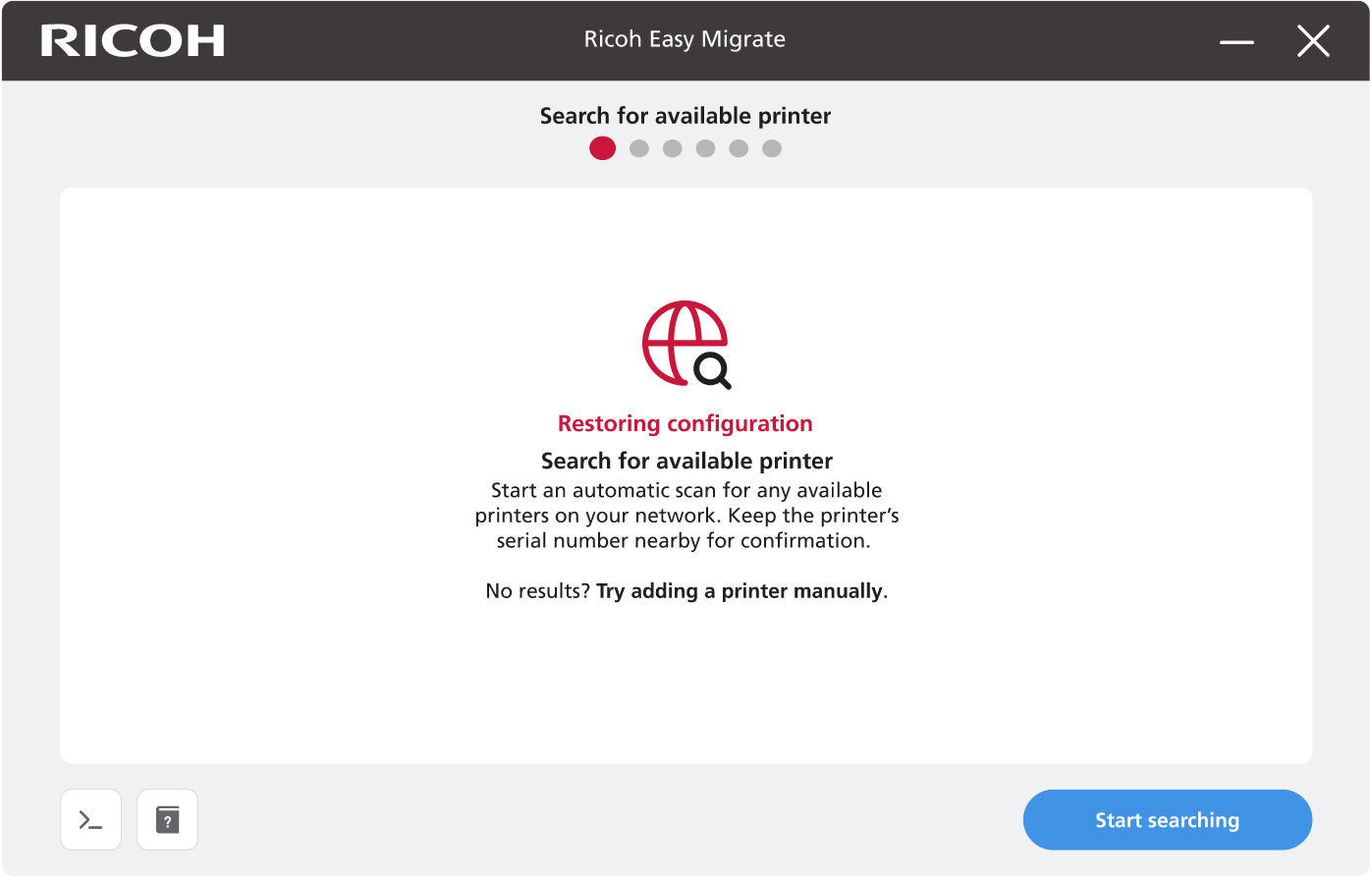
Search for available (multifunctional) printer screen
After the scan has completed, you will see the found (multifunctional) printers in your network. Check if the correct (multifunctional) printer is found based on the serial number.
If the correct (multifunctional) printer is NOT found, add the (multifunctional) printer manually by IP address. Open “Add (multifunctional) printer manually” in the left menu for more help.
When the correct (multifunctional) printer is in the list, you can select one to restore the backup to by clicking on the box. After selecting a (multifunctional) printer, the button “Connect to printer” will become available to click.
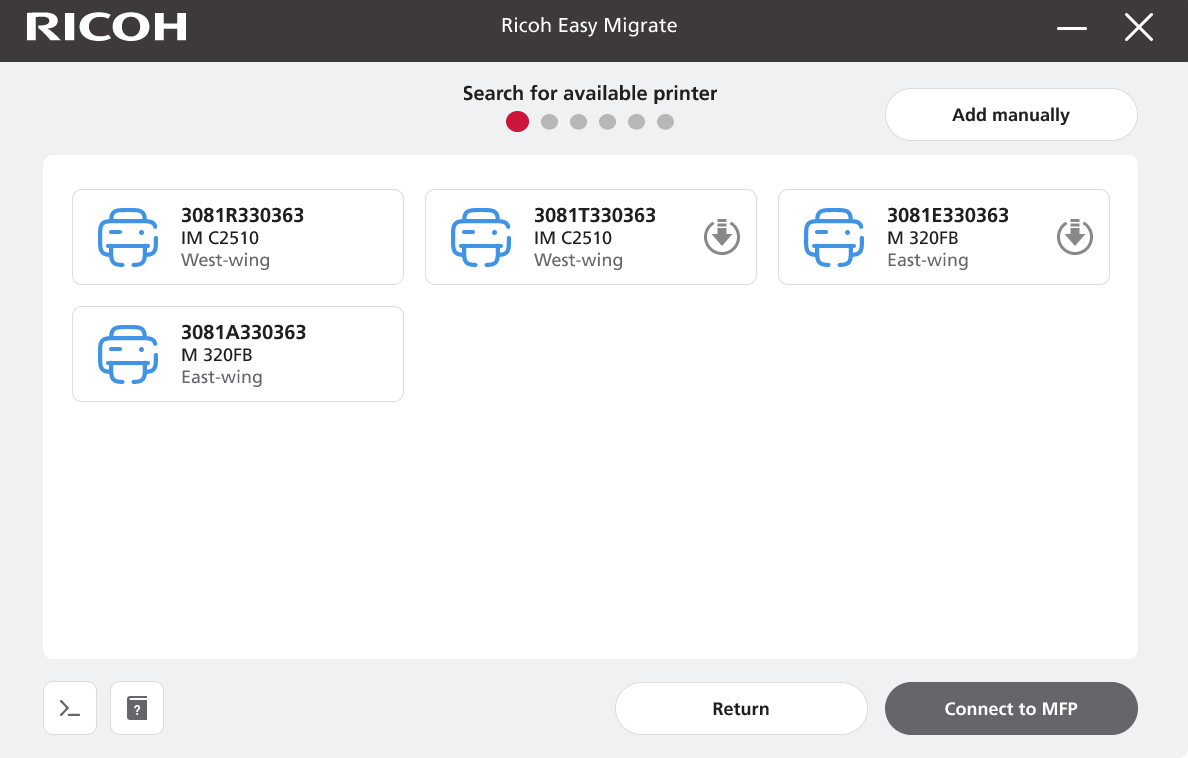
Found (multifunctional) printer screen
Step 2: Connecting to (multifunctional) printer
After clicking “Connect to printer” the application will attempt to sign in to the selected (multifunctional) printer with the default credentials.
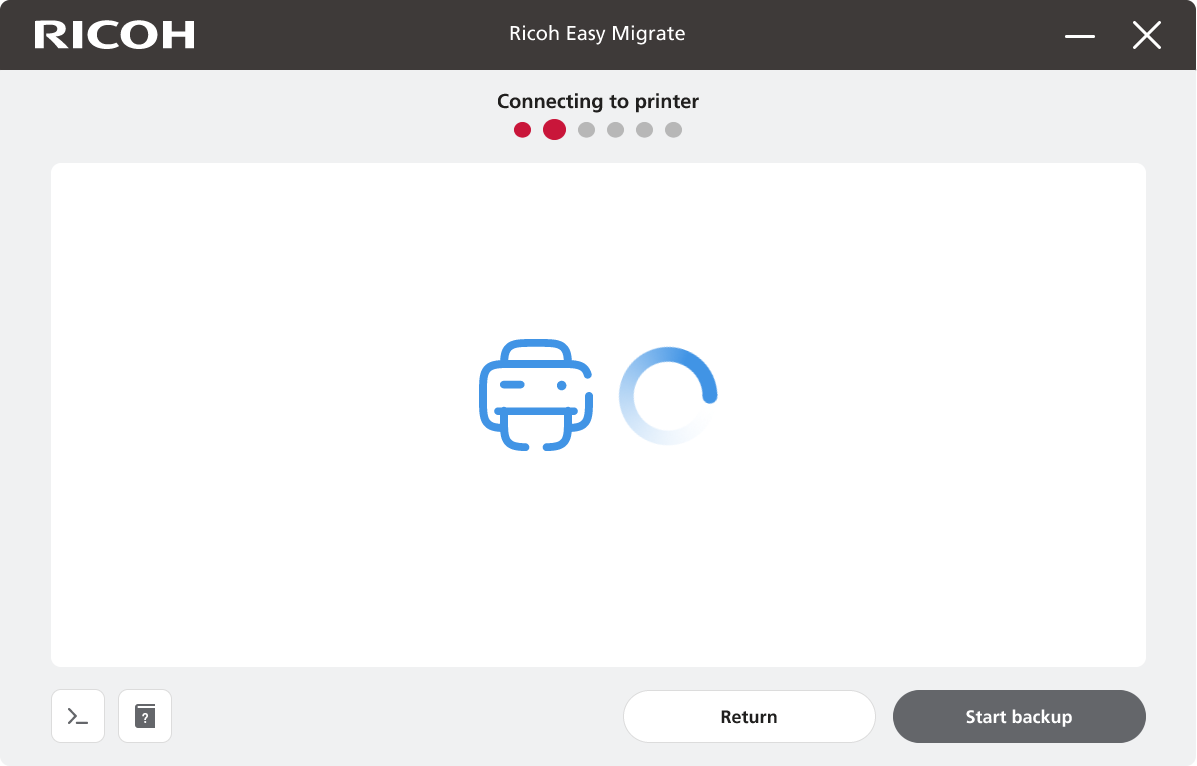
Connecting to (multifunctional) printer screen
If the default credentials fail, you will be prompted to sign in using the password of your current (multifunctional) printer. In most cases, the username is: “admin”. Your local Ricoh representative may be able to help you get this information. Click on “Connect to MFP” to check the entered credentials and connect to the (multifunctional) printer.
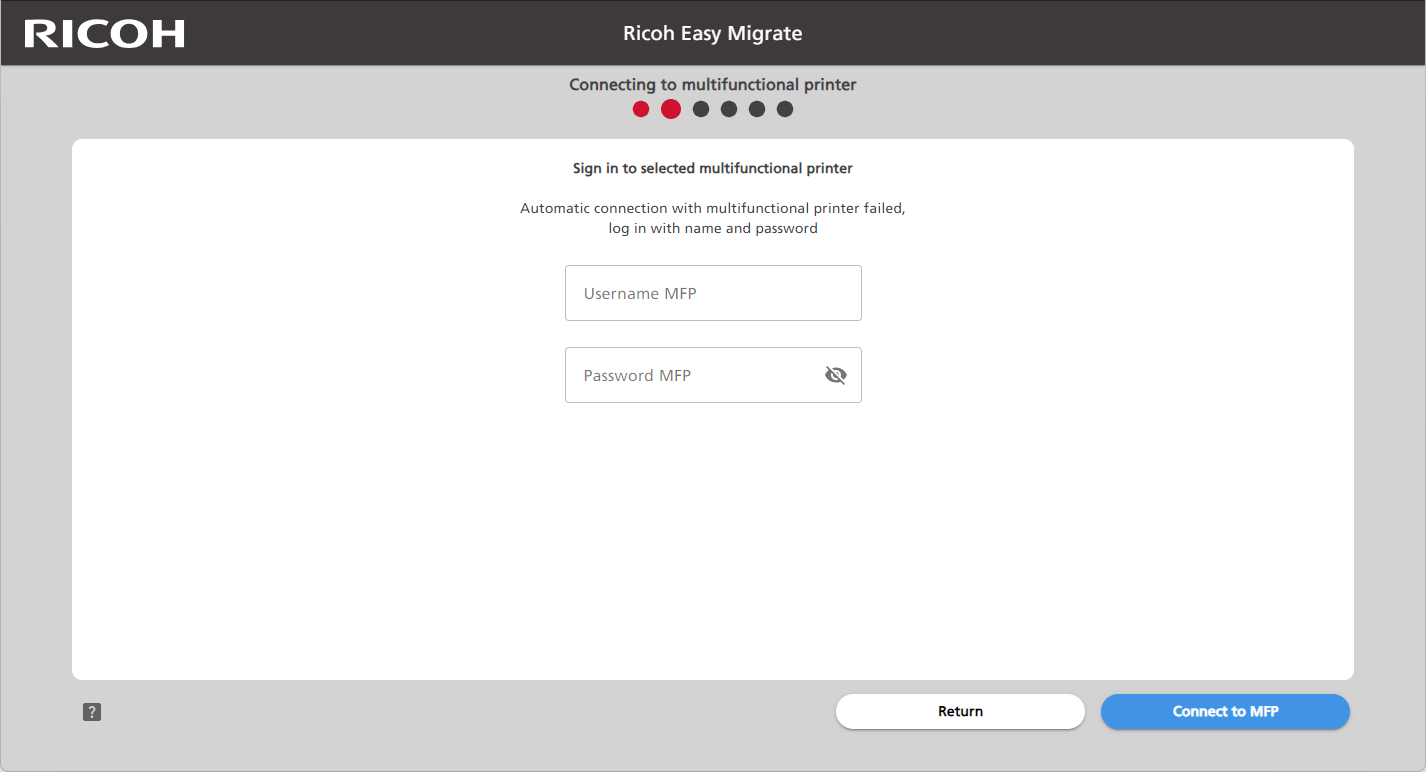
Sign in to selected (multifunctional) printer screen
Step 3: Summary of connected (multifunctional) printer
In the screen that follows, the RICOH Easy Migrate tool presents a summary of the next steps. Check again that the correct (multifunctional) printer is selected and click "Prepare restore". If the correct (multifunctional) printer is not selected, click “Return” and return to “Step 1”.
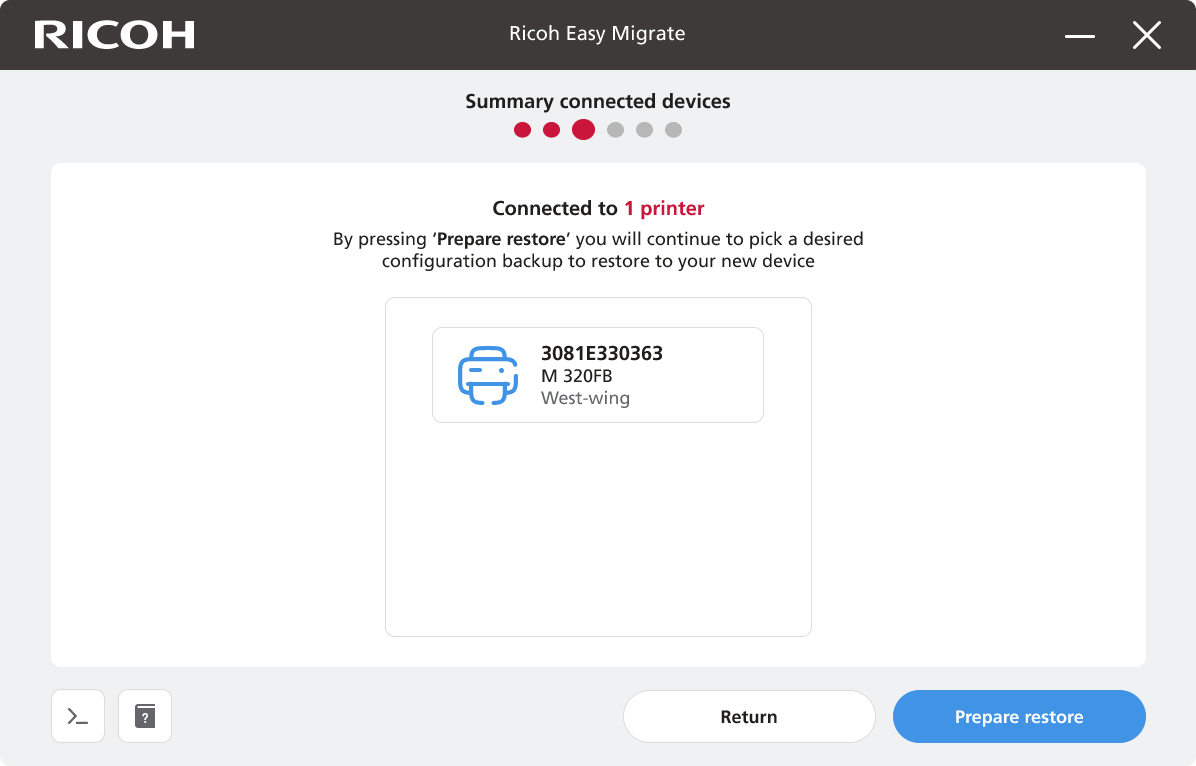
Summary of connected (multifunctional) printer screen
Step 4: Select settings to restore onto new (multifunctional) printer
In the screen that follows, the RICOH Easy Migrate tool may ask you for up to 4 passwords. Your system administrator may be able to help you get these details. Please scroll down on this window to check all the configuration items that will be restored to the selected (multifunctional) printer before clicking “Restore to MFP”.
Proxy password
A proxy server is like a middleman between your computer and the websites you visit. Imagine you want to send a letter to your friend, but instead of mailing it directly, you give it to a friend who then delivers it for you. That’s what a proxy server does for internet traffic.
Scrolling down on this page in the RICOH Easy Migrate tool will allow you to check the hostname/server name and username that is used as Proxy. This will help your system administrator identify what password should be used.
SMTP password
SMTP stands for “Simple Mail Transfer Protocol”. It’s a networking standard used for sending emails over the internet. The (multifunctional) printer uses SMTP for scanning to email. Scrolling down on this page in the RICOH Easy Migrate tool will allow you to check the hostname/server name and username that is used for SMTP. This will help your system administrator identify what password should be used.
SMB password
Server Message Block (SMB) is a communication protocol used to share files. Scrolling down on this page in the RICOH Easy Migrate tool will allow you to check the hostname/server name and username that is used for SMB. This will help your system administrator identify what password should be used.
FTP password
FTP stands for “File Transfer Protocol”. This communication protocol is used to exchange files. Scrolling down on this page in the RICOH Easy Migrate tool will allow you to check the hostname/server name and username that is used for FTP. This will help your system administrator identify what password should be used.
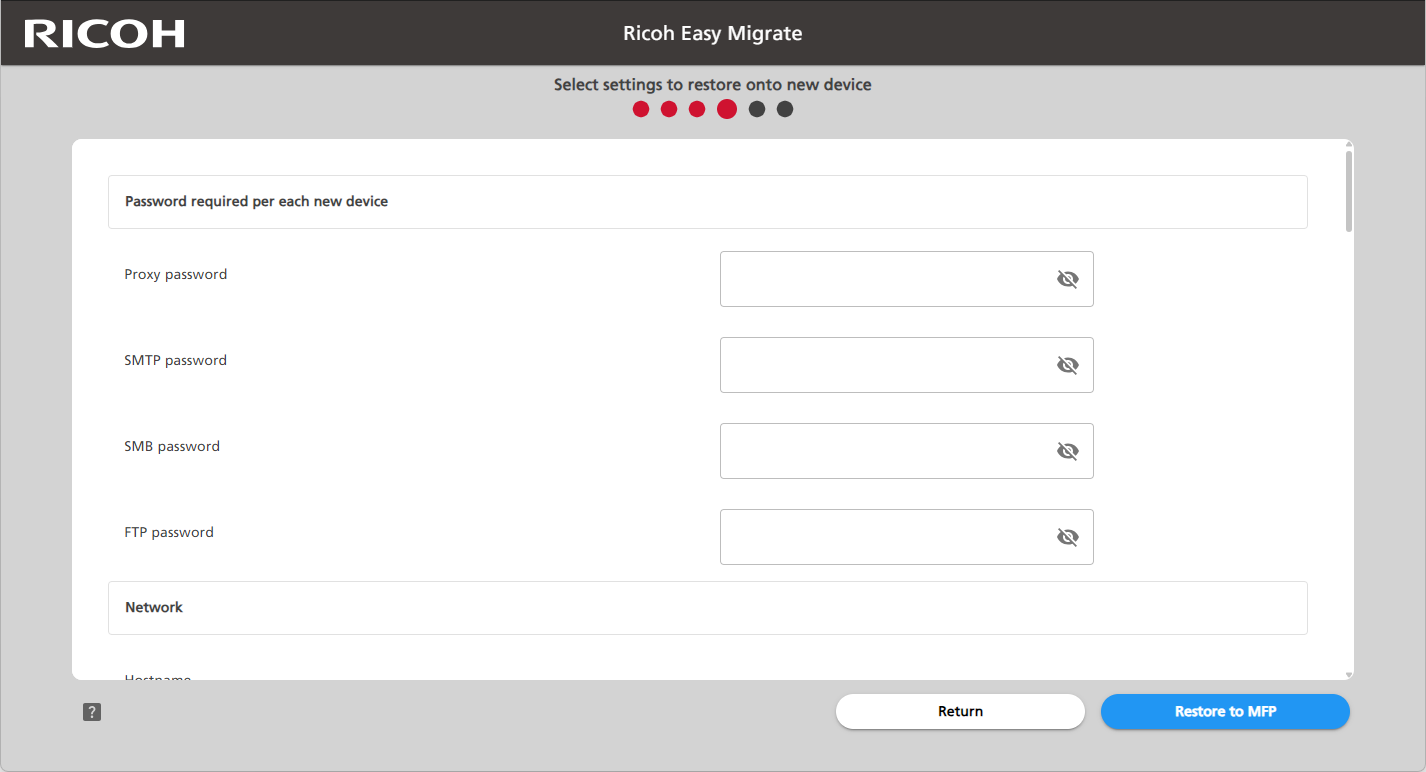
Prepare restore screen
Step 5: Restoring configuration onto (multifunctional) printer
The RICOH Easy Migrate tool will now proceed to restore the configuration to the selected (multifunctional) printer. The restore will usually be made in less than 60 seconds.
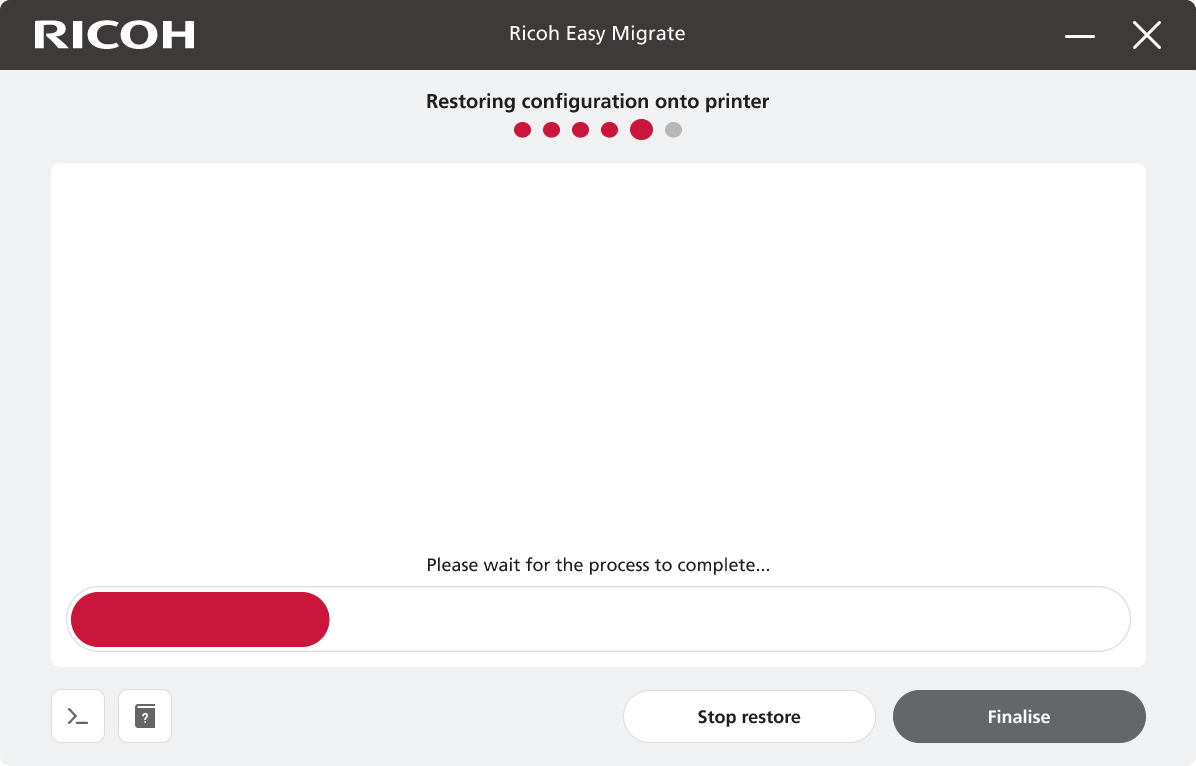
Processing restore screen
A restore may fail if there is no steady network connection to the (multifunctional) printer. Retry the restore and if the error persists, please contact your local Ricoh representative. Help and support | Ricoh Europe (ricoh-europe.com)
When the RICOH Easy Migrate tool has finished restoring the configuration, you should see a screen similar to this:
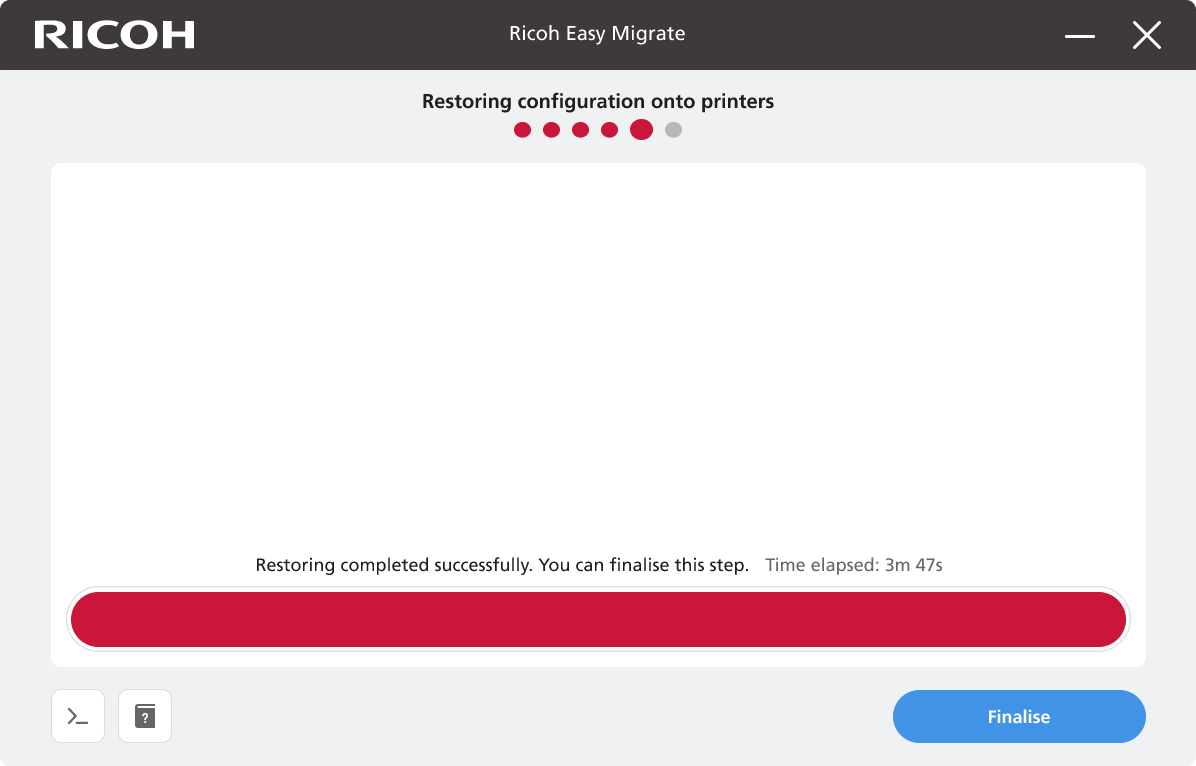
Restore completed successful screen
Click “Finalise” to continue.
Step 6: Finalise configuration backup
You have now performed a restore on your new (multifunctional) printer, and you can start using your new (multifunctional) printer.
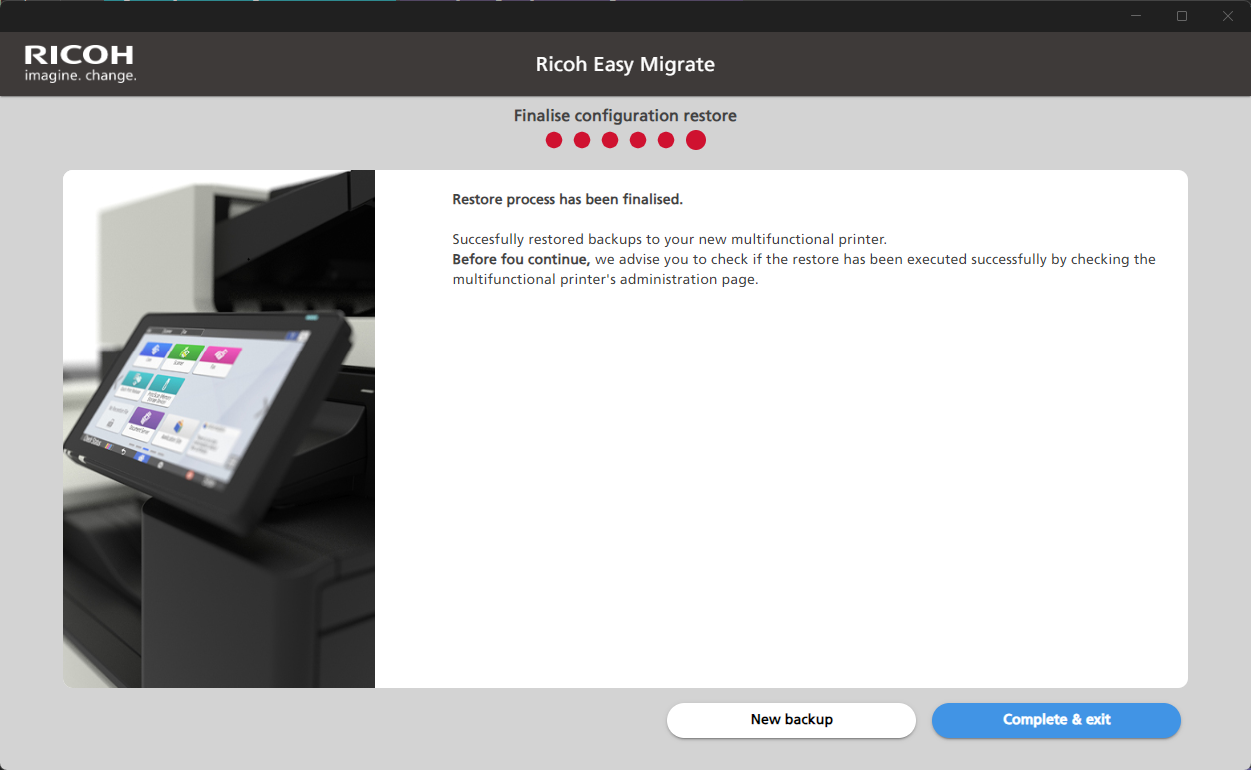
Next steps
Ricoh will advise you to update your current printer driver and set up a new admin password for the safety of your data. You may follow the quick start page to continue setting up your new (multifunctional) printer.
Create new backup
If you have another pair of a current (multifunctional) printer and new (multifunctional) printer where a migration/copy of the configuration needs to be performed, click on “New backup” and continue with “Part 1: Backing up configuration”.
Complete
If this was the last pair of (multifunctional) printer, click on “Complete & exit” to close the application. You may delete the RICOH Easy Migrate tool from your PC using the steps in this guide.
